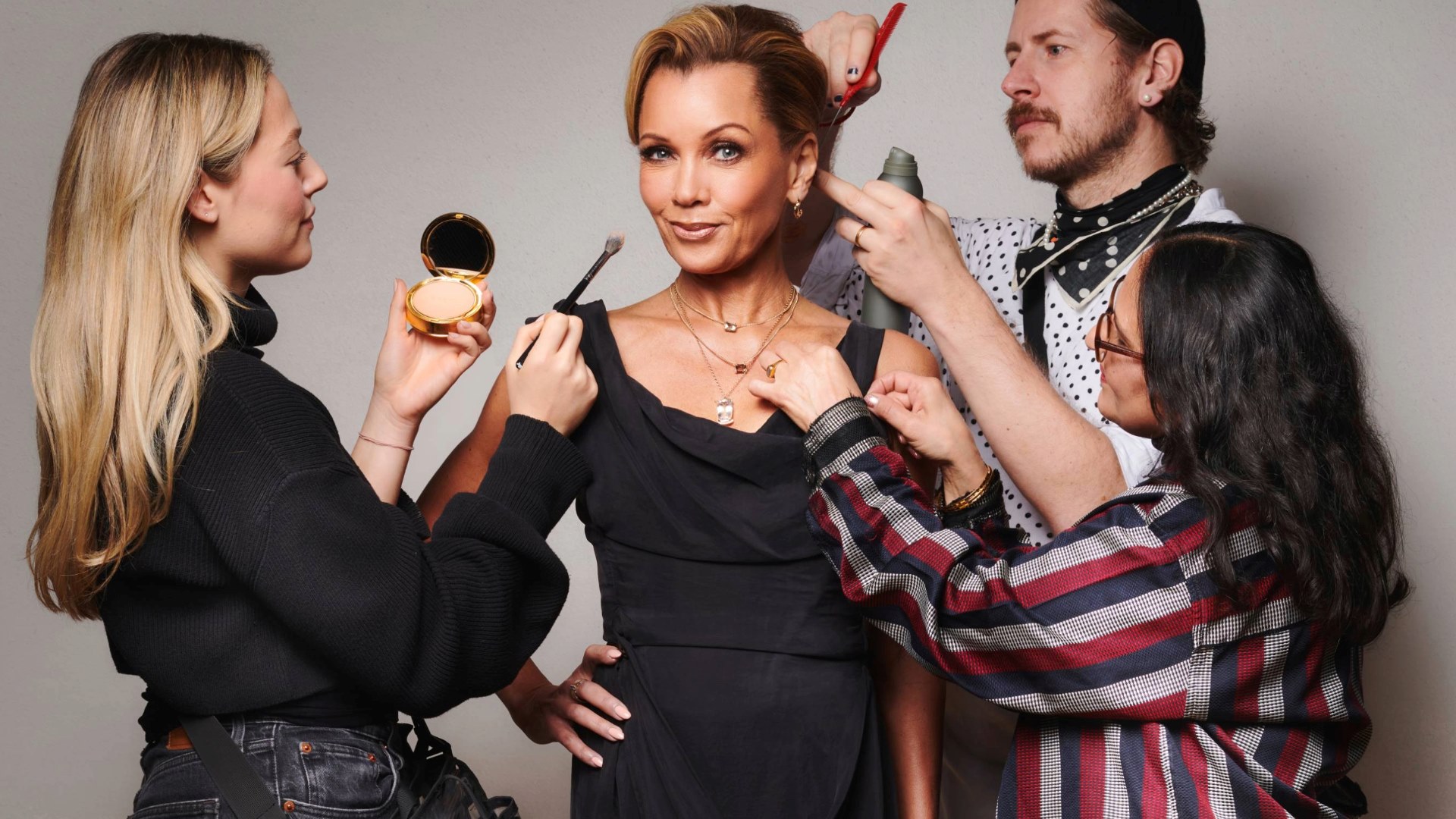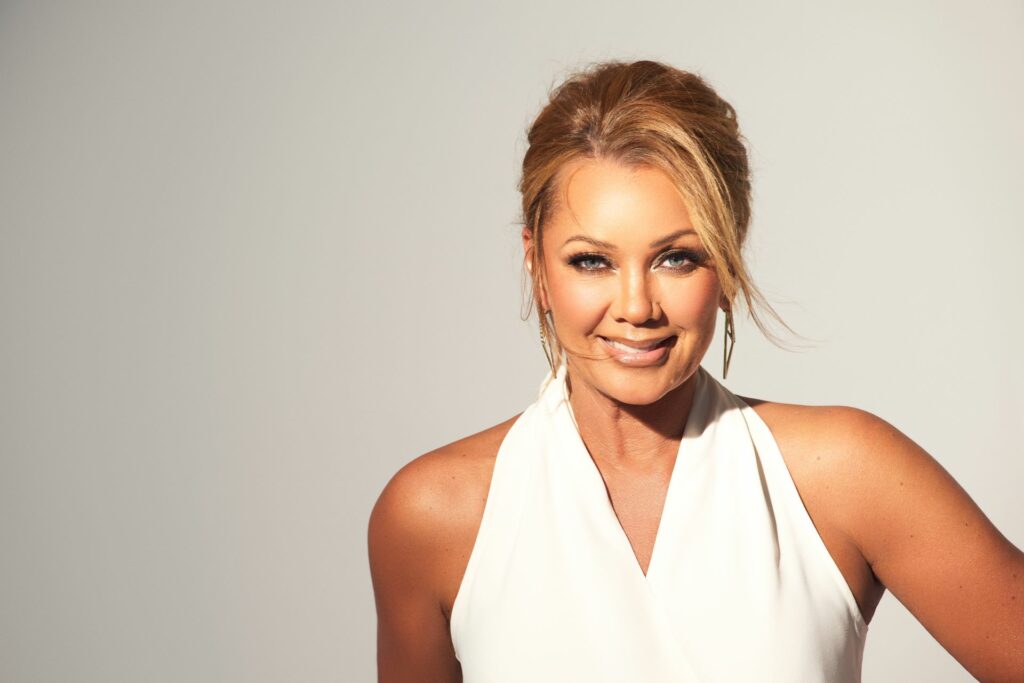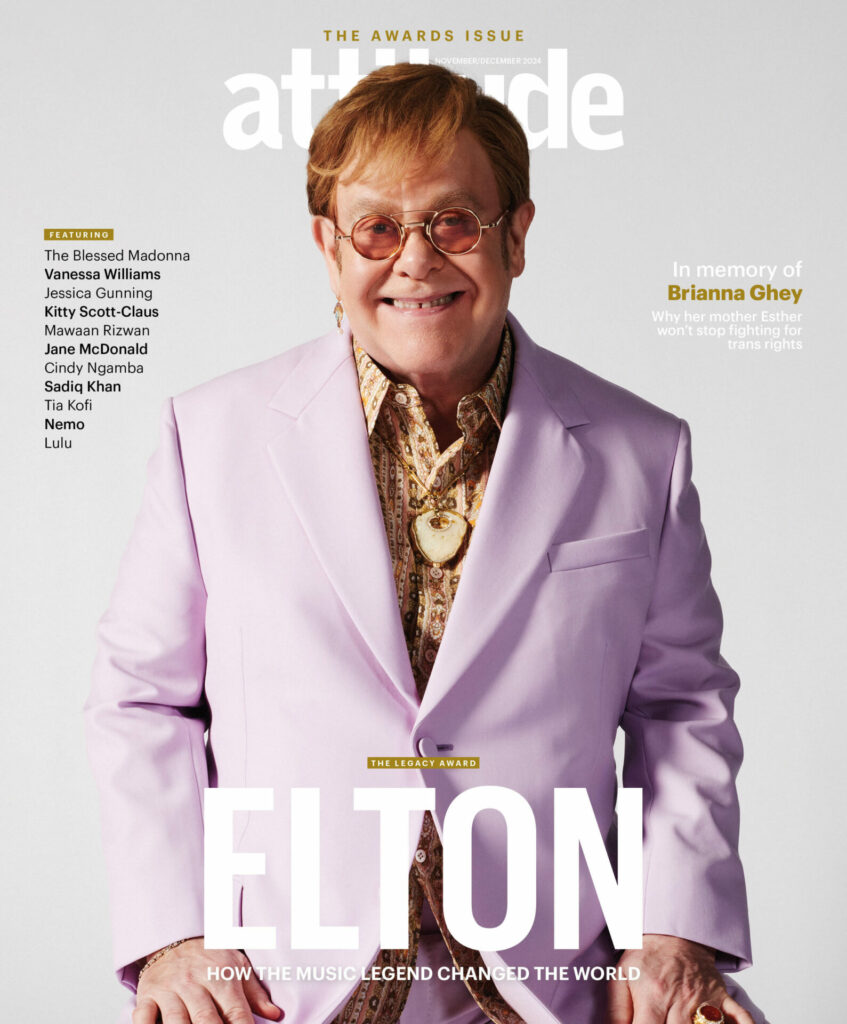Vanessa Williams on being ‘more cun*y’ in Ugly Betty and making Miranda Priestly her own: ‘I’m me, so I’m not Meryl’
In this exclusive interview, our 2024 Icon Award winner at the Virgin Atlantic Attitude Awards, powered by Jaguar talks the inspiration behind her most famous role, and how she's bringing her own touch to The Devil Wears Prada
By Dale Fox

Vanessa Williams greets us from the elegant kitchen of her temporary Plymouth home, unexpectedly free for the evening. We’re catching up via Zoom after previews for the The Devil Wears Prada musical — in which Williams stars as Miranda Priestly — are suspended due to right-wing protests shutting down most of the city centre. “I’ll be ordering Deliveroo,” she quips about her evening plans. As our conversation unfolds, Williams’ MacBook chimes with notifications. “I thought I put this on silent,” she remarks apologetically, leaving this interviewer half-hoping she’ll channel her Ugly Betty character and yell “Mark!” with Michael Urie scurrying in to activate Do Not Disturb.
Over the past four decades, Vanessa Williams, recipient of The Icon Award at this year’s Virgin Atlantic Attitude Awards, powered by Jaguar, has solidified her status as an icon through a multifaceted career spanning stage, screen, and music. Her journey into the spotlight began in 1984 when she became the first African American woman to win the Miss America title. This groundbreaking triumph, however, was cruelly cut short by a deplorable media frenzy when unauthorised nude photos were published, forcing her resignation. Yet, this setback ultimately set the stage for a career defined by resilience and reinvention. “Giving up was not an option, because bad publicity didn’t take my talent away,” she explains.
Reflecting on her Ugly Betty days, Williams recalls how legendary costume designer Patricia Field encouraged her to “be more cunty” in her portrayal of Wilhelmina Slater. She also addresses the show’s use of now-outdated language around trans people, noting, “You could say ‘tr***y’ like a term of endearment.”
Currently relishing being the first to bring the classic role of Miranda Priestly to the West End stage, Vanessa Williams continues to cement her status not just as a star, but as a true icon in every sense of the word.
You’re currently starring as Miranda Priestly in The Devil Wears Prada on the West End. How did you get involved in the project?
When they were casting, I was doing City of Angels in London, so I wasn’t even in the mix. Last summer, [director] Jerry Mitchell reached out and said he was taking over and would like me to consider being Miranda Priestly. I didn’t get a chance to even open in City of Angels — we did previews, but Covid shut us down, so I didn’t get to make my West End debut. He told me Elton John was willing, and he was writing new music. It was an opportunity for me to create a role, which has been on my bucket list. I’ve recreated roles on Broadway, but to be the first one on the West End to create Miranda Priestly is a huge honour.
What’s it been like working with Elton John on the music for the show?
He’s lovely. We did a two-week workshop in January when we read through the script, sang through the music and made some edits, which is a great thing about doing a new musical. Having him in the room, he was so happy to see Jerry’s vision. I had dinner with him and the producers at his lovely mansion in Windsor, which is incredible. He was lovely and warm, and David, his husband, is incredibly kind and encouraging. They’re both part of the team, so they want it to be great. Elton wrote two new songs for me, because Jerry said we needed a song here and a song there, so he’s like “Boom — here they are.” It’s been great to watch the process and have him deliver.
Miranda Priestly is of course one of Meryl Streep’s most iconic film roles. How are you making it your own?
Well, I’m me, so I’m not Meryl. It’s me 100 per cent and I’ve got to fill the stage with my attitude and voice and presence. It’s a completely different medium. [With film] you have the luxury of editing and close-ups. [With theatre] you’ve got to use your entire body, which is what I love about it. Of course, there’s no songs [in the movie]. That’s what’s great about a musical — you get to take moments and extend them into music and dance and movement. And we’ve got a great, super-talented cast, and I love our relationship on stage. Matt Henry, who plays Nigel, and I have a wonderful relationship that’s sassy, and we’re comrades. Amy [Di Bartolomeo], who plays Emily, is brilliant and hilarious and frantic and just a joy to work with. And Georgie [Buckland], who plays Andy, is killing it.
The language used in the show around the transgender character Alexis Meade hasn’t aged well. Do you wish you could change that?

I do think most of these words come out of the community, and love, and pure cuntiness — and I use that word because Patricia Field, who I love and who created my character of Wilhelmina Slater, was always like, “It’s got to be more cunty; oh yeah, that’s cunty; make it more cunty.” And she knew I could do it. She knew that whatever we were coming up with together, it was going to be cunty. And that’s what Wilhelmina needed to be, and that’s what the community was like back in the 80s. You could say ‘tr***y’ like a term of endearment. Stand up for what you feel, but it’s going to continue to happen, because that’s what life is about. What was cool back before my time, like saying a Black person is a ‘negro’, that went out of fashion. Saying they were ‘coloured’, that went out of fashion. Then we reclaim it back. Now, it’s ‘African American’. It’s just the nature of language and the evolution of the lexicon. It was what it was, and that’s what the writers wrote, and that was acceptable.
How do you think the next decades of your career will look?
As I mentioned before, I’ve been lucky to work with legends, legendary women. Barbara Cook on Broadway, she was 85. Cicely Tyson on Broadway, she was 85. Diane Carroll played my mother in a TV movie called Courage to Love; she was in her seventies. Eartha Kitt played my mother in a movie called And Then Came Love, and she was in her eighties. I’ve seen Elaine Stritch in her eighties on Broadway, coming backstage and rooting me on. So, I know in the next 20 years, I plan on doing as much as I can — stuff that fuels and excites me — and continuing to make an impact through my work.
What does receiving The Icon Award mean to you?
To influence culture is an honour. Because it’s the little things that you do that you don’t know people are paying attention to. The fact that my life and my example can continue to influence and make a difference in people’s lives is very humbling and I’m very honoured and full of gratitude. And I know my work is not done.
The Devil Wears Prada runs from 26 October at the Dominion Theatre in London. Tickets are available now by clicking here.

This is an excerpt from an interview in the Attitude Awards issue 2024. To read the full interview, order your copy now or check out the Attitude app.
